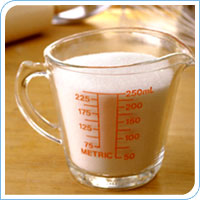 There are so many aspects to weight loss and weight control that you really almost need a post-graduate degree to have any chance of success. So if you are one of the masses who has ever struggled or continues to struggle with your weight please give yourself some respite because I’m guessing for most of you this is not your area of expertise.
There are so many aspects to weight loss and weight control that you really almost need a post-graduate degree to have any chance of success. So if you are one of the masses who has ever struggled or continues to struggle with your weight please give yourself some respite because I’m guessing for most of you this is not your area of expertise.
I have the philosophy of always looking at myself as a work-in-progress. At heart I am a perfectionist and strive for the best outcome in everything I do, but sometimes the sculpture you are creating takes more time, more education and some hiccups along the way. However, you are worth it and the results are worth it.
Two years ago I was 106 kg and back in 2003 I was out to 112 kg with all kinds of fluctuations and diets in between. I woke every morning with a headache, had high cholesterol levels and slightly elevated blood pressure, skin problems, back problems, and so on. Now I weigh 85 kgs, with no headaches, my back is fine and my skin is still improving. I haven’t had my cholesterol checked again yet but I’m betting there is marked improvement.
I believe body weight is affected by the following:
1. Diet (all consumption including food, drinks, medications and supplements;
2. Exercise – You can live without it for a while but the fact is we are designed to move.
3. Current Metabolic Set Point – I call it this, but other terms are regularly used.
4. Hormones – There are more than people realise that affect our weight – insulin, leptin, grehlin to name a few.
5. Mindset.
The critical thing to note is that we need an wholistic approach that ensures we have a strategy across all five of the above areas because in this complex system that is the human body they all interact. There’s no point on working on any less than the whole five points listed otherwise you are literally doomed to fail which is why so many diets and exercise regimes don’t work.
In coming posts I will go into each of these in more detail. For now however, even though I was being honestly supportive with the earlier work-in-progress comments, it’s time to give up certain excuses that may be holding you back. We’ve all heard (and maybe said) things like:
“It’s just the way I’m built”
“It’s genetic, look at my (father, mother…)”
“I’ve simply got big bones” (possibly my all-time favourite)
“I can’t exercise, I’ve got bad (knees, ankles, hip…)”
“I just don’t have time”
“My hormones are all stuffed up, it’s impossible for me”
“I can’t diet, I hate/can’t eat/am allergic to…”
Sound familiar? Let’s go on a journey of discovery and improve our education, motivation, self-esteem, and life a much healthier life. Watch this space!
